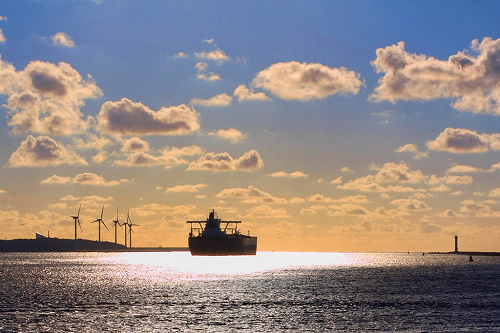Gateway to the world: how the EU helped Rotterdam to become Europe's largest port
The first ships have yet to arrive, but already there is plenty of activity amid the sand and the dunes. Rotterdam, Europe’s biggest port, has just reclaimed 2,000 hectares of land from the North Sea to expand its gateway by a staggering 20%. Reduced to rubble during the Second World War, Rotterdam quickly blossomed in the following decades thanks to the gradual reduction of trade barriers between members of the European Union.

Rotterdam is Europe's biggest port with a turnover of €600 million a year
The Dutch are creating additional deep-port capacity in Rotterdam in order to be able to welcome the newest generation of ultra-large container vessels, such as new 400-metre long ships that can carry up to 18,000 containers.
Hans Volker, public information officer for the new port development, said: "The new port development is attracting investment from companies around the world who want to take advantage of the European single market. Extra capacity and new infrastructure links will ensure Rotterdam retains its lead as Europe's trading gateway and will ultimately benefit businesses and consumers across the continent."
Catching the eye are a dozen brand new quay cranes, delivered only a few weeks earlier. When these cranes raise their arms, they rival the city’s new Erasmus bridge in height. The new cranes are semi-automated and each one can carry two containers simultaneously. They belong to two competing container terminals that can unload the newest generation of container ships 24 hours a day. When the new terminals open in November of this year more than 25 of these huge cranes will be operational.
This ambitious expansion is a testament to how much Rotterdam has developed over the last 60 years thanks to Europe’s single market. Some 32,000 ocean-going vessels and 87,000 inland vessels a year make use of Rotterdam port, which offers employment to more than 90,000 people. It has a turnover of about €600 million a year.
The European economy stands to gain more than 10% in additional economic growth in the long term as a result of the single market, according to the Dutch government’s Central Planning Bureau . For the Netherlands, this could amount to as much as 17% in extra growth.
Source: European Parliament
- 316 reads
Human Rights
Ringing FOWPAL’s Peace Bell for the World:Nobel Peace Prize Laureates’ Visions and Actions

Protecting the World’s Cultural Diversity for a Sustainable Future

The Peace Bell Resonates at the 27th Eurasian Economic Summit

Declaration of World Day of the Power of Hope Endorsed by People in 158 Nations

Puppet Show I International Friendship Day 2020

